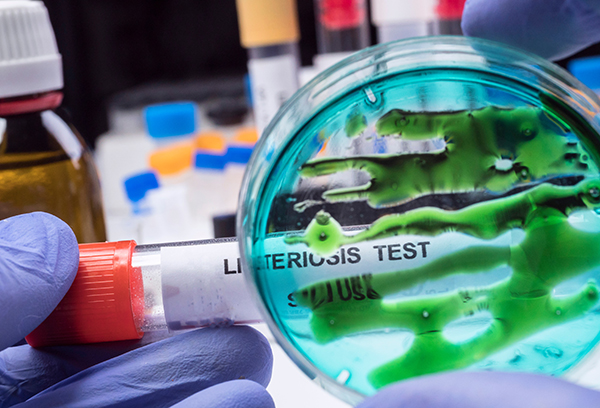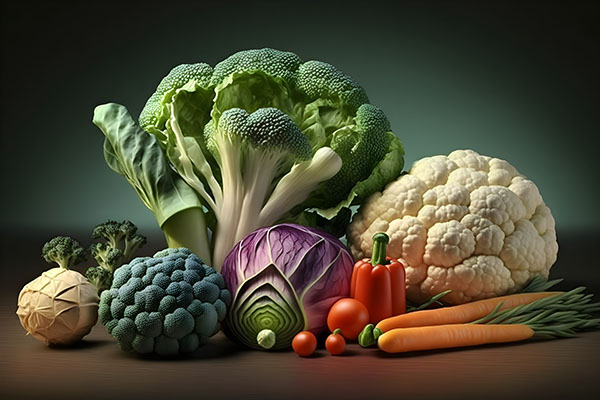Several lots of frozen corn and mixed vegetable products voluntarily recalled for possible listeria contamination
09/03/2023 / By Olivia Cook

Washington-based frozen vegetable manufacturer Twin City Foods recently announced a voluntary recall of some of its frozen sweet-cut corn and mixed vegetables due to potential concerns that the frozen vegetables were contaminated with listeria.
The affected brands are Kroger, Food Lion and Signature Select. The frozen vegetables recalled included two lots each of mixed vegetables and sweet corn from Kroger, a lot of mixed vegetables and a lot of sweet corn from Food Lion and a lot of sweet corn from Signature Select.
A notice published by the Food and Drug Administration noted that the recalled products had best-by dates ranging from November 2024 to January 2025. A full list of the affected products and their lot numbers can also be found on the FDA’s website.
The statement released announcing the recall noted that the recall was initiated based on a customer’s third-party lab results of the frozen corn. Fortunately for Twin City Foods, none of the contaminated food lots have caused any reported illnesses so far.
Regardless, the company is strongly recommending that customers check their freezers to see the lot numbers of their frozen vegetable packs. If the numbers correspond to the ones listed on the FDA’s website, customers are advised to throw them away or return them to the store for a refund. (Related: Listeria OUTBREAK linked to milkshakes sold at Frugals Tacoma causes three deaths, six hospitalizations.)
Listeria exceptionally dangerous to the young, old, immunocompromised and pregnant
Listeria is a hardy germ that can continue to grow even while refrigerated. The sickness it causes, known as listeriosis, usually only causes mild infections and is not usually life-threatening.
However, the FDA warned that it can cause “serious and sometimes fatal infections,” especially for very young people, the elderly, those with weakened immune systems or are currently pregnant.
Symptoms vary but can include fever, headaches, diarrhea, nausea, stiff neck, confusion, loss of balance or even seizures. Symptoms typically begin appearing within two weeks after a person ingests the contaminated food product.
Persons who experience any of the aforementioned symptoms within two months after eating potentially contaminated food products are advised to seek medical care and tell their trusted healthcare providers about the situation.
Vegetables like the ones Twin City Foods warned may contain listeria probably picked up the bacteria after coming into contact with contaminated surfaces at the company’s processing plants. It likely went unnoticed due to lax testing rules and due to listeria’s unique ability to survive and thrive in very cold conditions.
Fortunately, the FDA noted that heating food properly to 165 degrees Fahrenheit may be able to eradicate listeria, which is why the agency emphasized the importance of making sure vegetables are heated at this temperature for a certain amount of time before it is ingested.
Furthermore, the FDA pointed out that the food products voluntarily recalled by Twin City Foods carry the label “not ready to eat,” meaning that they must be cooked properly before they can be considered safe for consumption.
Visit CleanFoodWatch.com for more stories about food contamination, including listeria contaminations.
Watch this video questioning whether listeria helped cause a surge in hospitalizations in Canada.
This video is from the 1Human channel on Brighteon.com.
More related stories:
CLEAN FOOD WATCH: 6 Foods that are likely to be contaminated with heavy metals.
BEWARE: USDA allows genetically engineered vaccines to infiltrate organic food production.
Listeria OUTBREAK linked to recalled ice cream cups feared to have spread in 20 states.
FDA recalls green organic kiwifruit from 14 states due to potential LISTERIA contamination.
Sources include:
Submit a correction >>
Tagged Under:
bacterial infection, clean food, clean food watch, Diseases, food, food safety, food science, food supply, grocery, listeria, Listeria monocytogenes, listeriosis, Product recall, products, Twin City Foods
This article may contain statements that reflect the opinion of the author
RECENT NEWS & ARTICLES
COPYRIGHT © 2017 FOOD SCIENCE NEWS



















